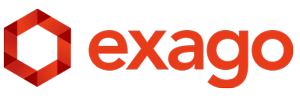iPhone at Apple, Gmail at Google: these are the results of incremental innovation – of structures, features and processes improvement – typically involving larger numbers of people in these efforts. Thomas Edison, though usually considered an inventor, was in truth amazingly brilliant at refining products so that these reached their optimal condition for use and commercialisation. Here are two more examples of incremental innovation at work.
a) Fleury – collective intelligence worth millions
The Brazilian company Fleury – a leader in clinical analyses in Latin America – has more than 10,000 employees. They have been included in Fleury’s innovation efforts. In 2007, the company initiated a programme to encourage suggestions for how to improve its operations, allowing all employees to submit ideas on paper. These were then evaluated by an innovation committee.
To optimise the process, in 2011, the group adopted the Central de Ideias or Idea Market. Created by Exago, this innovation management solution is a software platform where all stakeholders can participate – not only collecting and harnessing everyone’s ideas but also evaluating them.
Within a year, the results overtook even the most ambitious targets:
Fleury’s innovations have generated millions of dollars in value. They have reduced operating costs and introduced more efficient, sustainable and environmentally friendly processes. In early 2015, almost 8,000 participants were still interconnected and actively participating. More than 11,800 ideas had been submitted and over 500 implemented.
b) Renova – black toilet paper, really?
‘Why not?’ was the slogan the paper consumption goods Renova used in 2005 when launching this new product. Something as unpretentious as changing toilet paper’s colour to black transformed this small Portuguese company.
Soon, newspapers and magazines across the globe rated Renova’s black toilet tissue as a top luxury good. The New York Times described it as a ‘must-have’, and its enthusiasts grew in number – including famous artists and personalities.
Renova next adopted different colours. Beyoncé, reportedly, is said to be a fan of the red toilet paper. In just two years, Renova’s tissues and toilet paper could be found in 50 international markets and in the best hotels and restaurants in Japan, France, the UK, the United States, Belgium and Spain. Since then, the company has continued to multiply its trade channels, also opening pop-up stores and new concept boutiques. Clearly, incremental innovation promotes not only trust and collaboration but also calculated risk-taking.
However, innovation also takes shape in radical, disruptive, incremental and social frameworks. We’ll have a look at some more examples next.
READ MORE:
Social innovation, a world of challenges and opportunities
FROM THE START:
How can you measure innovation management?
Pedro do Carmo Costa, Exago’s director and co-founder
pcc@exago.com
